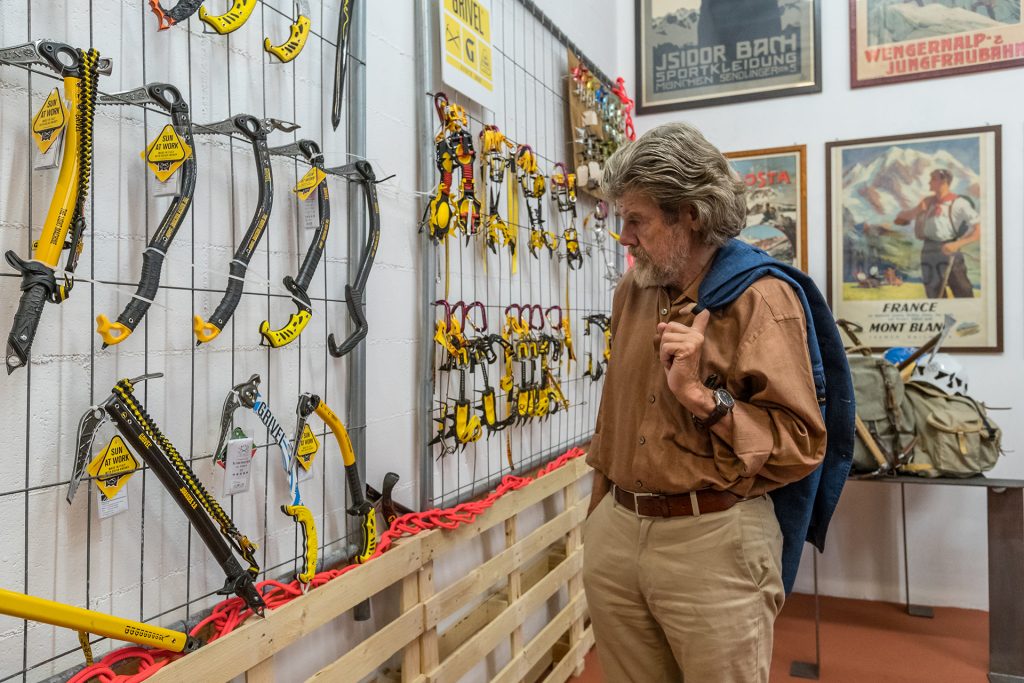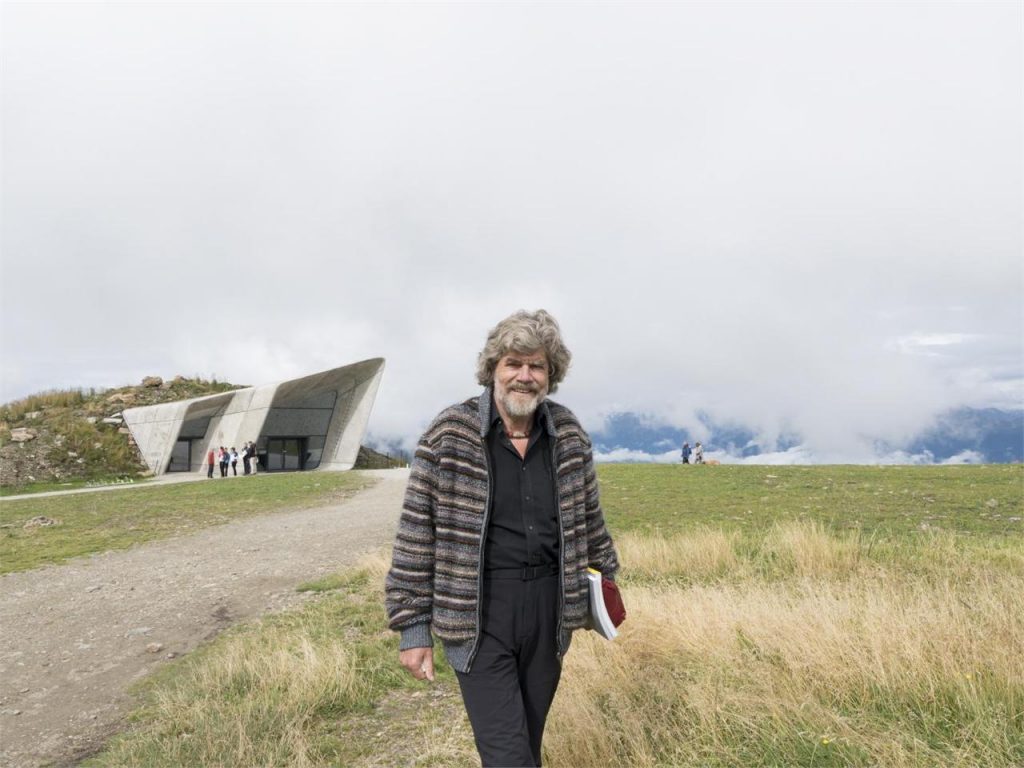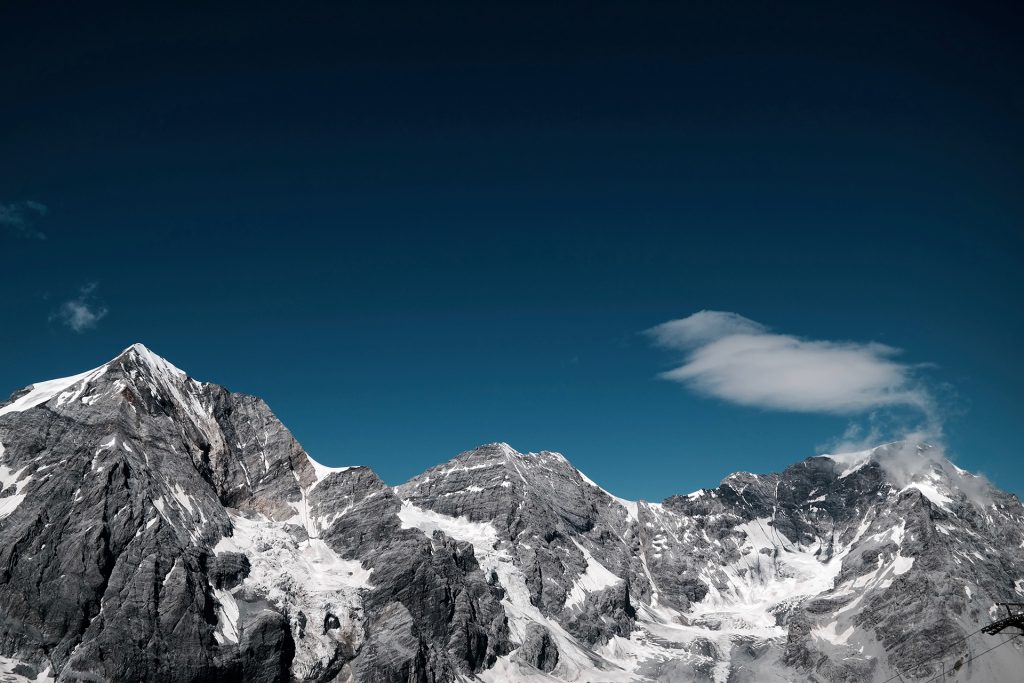Reinhold Messner - Interview
In 1982 Reinhold Messner, known today as a living legend of worldwide alpinism, was a young alpinist with an unruly beard and long straight hair. Together with his one year old girl Layla, born from his second wife, canadian photographer Nena Holguin, he traveled that year to Nepal for an himalayan expedition with the goal to climb the Kangchenjunga peak a very desired 8000, the third highest mountain of the world. That trip, characterized by the simple village life, mingling with the locals, going for long walks with baby Layla on his shoulders, inspired a sweet illustrated fairytale in which Messner recalls that special adventure with his daughter and the values tied to the mountains which Messner wanted to transfer to his daughter since her early years.

Title of the book is “Layla in the Snow Kingdom”, published by Erickson, drawings by Davide Panizza. “I tried to describe clearly in a child friendly language deep feelings that acoompanied me since childhood – Messner explains to Magic mountain collective, – from the venuen of his museum in Castel Firmiano – Southtirol (Schloss Sigmunstrom in german.). The love for the mountains, the search for beauty, the discovery of silence and solitude. I wanted to transfer to the young ones those values witnessed by populations who live in places considered “impossible” lacking all comforts so much sought for nowadays. With this fairytale I try to attract the kid’s attention over the possibility of living with joy and serenity in a different world making them reflect in order to mature an echological awareness and a greater respect for nature.” Messner has been the only alpinist in the world to climb all the fourteen “eightthousand” of the earth, he published over 50 books about mountains and alpinism translated in more than ten languages.

Mr. Messner, Layla, your daughter, is today fourty years old, she is a painter and of course prefers to paint those mountains she discovered with you and loves. How did she react when you told her you would publish her story in a book for kids?
“Layla lives in Canada , province of Alberta, I sent her a copy of the book she knew nothing about , it has been a wonderful surprise for her . She called me right away to tell me I had given her the best gift of her life. I hope also the young readers will experience the same joy.
This story was left in a drawer for thirty years and I decided to publish it only now, after a friend talked me into doing so. I wish they will be able to discover the wonder that can be found in the silence and peace of the mountains but also the importance of freedom, the idea that each one of us is free to follow its own passion, day after day. This is a small tale, very easy to read , appropriate also for very young kids, I imagine they will listen to their mother’s voice telling the story before falling asleep”.

Is it a different way to talk about mountain culture?
“mountains can teach us that renunciation and not consumption is the key to happiness. I accompanied little Layla in the snow kingdom to the lonely villages where people lived with nothing, amongst ices,trees and yak. Walking together, on my shoulders of course, in the snow she breathed that world that somehow she absorbed and now lives within her.
You recently became a grandfather, will you read this story to your nephew?
Leo Alexander, Magdalena’s son is still too small but as soon as he grows up a little I will certainly read it to him.”
Editor Corbaccio has just published in the Exploits collection, your book “Let’s save the Mountains” which follows the theme of one of your historic essays “Save the Alps”. Is this manifesto still valid?
“ The behaviour and ethics topic in the mountains is still central. From responsibility to commitment not to leave any trash behind to respect for the local populations and the attention to the growing technique in alpine activities. The future lies in echo-turism, a sustainable turism, responsible and aware. I wrote a “chart of values “ with ten points which should offer indications for the future approach to mountains and its issues, also considering policies both for single states and for Europe in its whole.”
In “Save the Alps” Rheinhold Messner wrote more than twenty years ago : “ in the mountains I see the last island of existing stillness. When I come back from big areas, the cities with their aggressive and oppressive life conditions, they appear to me as prisons. Mountains could be the place where we will retreat in the future. The privilege of drinking clear water and to breath pure air will cost us more and more fatigue, already now you cannot buy this with money.” Again in 1997 he wrote: ”during excursions we must stay on the pathway and limit the commotion. We must not disturb, scare or disperse the animals. Do not abandon bottles or plastic objects on the pastures. Do not throw stones on fields and pastures. Let’s grant our respect to all inhabitants of the mountains”. All more than valid recommendations also nowadays.
Written by Guido Andruetto
